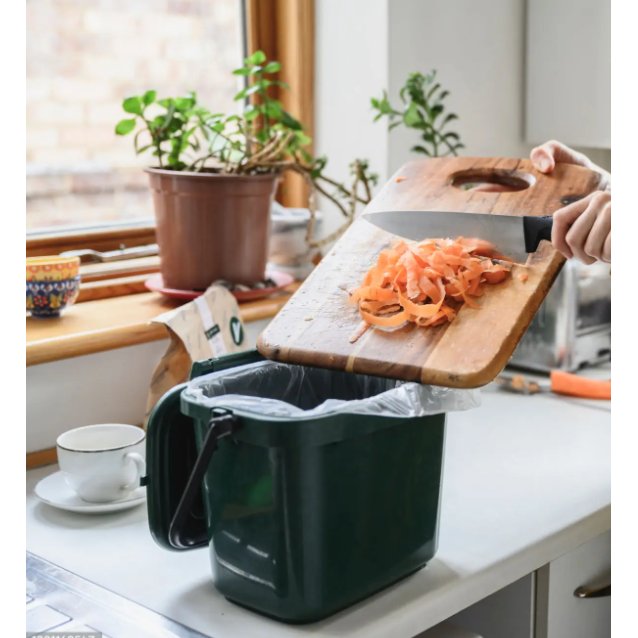
How to Start Composting in an Apartment: A Beginner’s Guide
Composting is a great way to reduce waste, protect the environment, and create high-quality natural fertilizer for your plants – all without needing a garden. If you live in an apartment, it may seem challenging, but with the right approach, it’s completely doable. In this article, we’ll share beginner-friendly tips, different types of home composting systems, and ways to prevent unpleasant odors. Let’s get started!
Why compost indoors?
Before diving into the details, let’s remember the benefits. Composting reduces the amount of waste sent to landfills and helps fight climate change by lowering methane emissions from decomposing organic matter. Plus, you get free, nutrient-rich fertilizer for your houseplants or balcony flowers. Even in a small space, composting can be simple and effective.
Beginner tips: step-by-step guide
If you’re new to composting, don’t worry – it’s easier than it seems. Start small and learn as you go.
- Gather your materials: Composting requires a balance between “greens” (nitrogen-rich, like fruit and vegetable peels, coffee grounds) and “browns” (carbon-rich, like paper, cardboard, or dry leaves). Aim for a ratio of about 1:3 in favor of browns to prevent odor and rot.
- Choose the right spot: Place your composter in the kitchen, on the balcony, or in a pantry. Ideally, it should be kept in a cool, dry place out of direct sunlight to avoid overheating and odor.
- Start collecting waste: Begin with kitchen scraps like fruit and vegetable peels, tea bags, or eggshells. Avoid meat, dairy, and oils, as they attract pests and cause unpleasant smells.
- Check regularly: Stir the compost once a week to ensure proper airflow. The moisture level should feel like a wrung-out sponge – not too wet, not too dry.
- Freeze your scraps: To prevent bad smells, store organic waste in the freezer in a bag or container until you’re ready to add it to the composter.
- Be patient: The first compost batch can take 2–6 months, depending on the method. Monitor the process and adjust as needed.
Types of home composters for apartments
In apartments, there’s no space for a large compost pile, so choose a compact system. Here are the most popular options:
- Vermicomposter (worm composter): Uses worms (such as Eisenia fetida) to quickly break down waste. Requires a ventilated plastic container. Ideal for apartments, as it’s quiet and odor-free when maintained properly.
- Bokashi composter: A fermentation-based system that uses beneficial bacteria for fast decomposition. It’s airtight, minimizing odor. After fermentation, the contents can be buried in soil or added to another compost.
- Electric composter: A modern device that automatically dries and grinds waste. It’s more expensive but fast (compost in hours) and odorless thanks to its filtration system.
- Simple kitchen composter: A small container with a carbon filter in the lid. Perfect for temporary waste storage before taking it to a community compost or larger system.
If you don’t have space for your own composter, consider community composting or dropping off organic waste at specialized collection points.
How to prevent bad odors
Odor is the biggest concern when composting indoors, but it’s easy to prevent with a few simple practices.
- Balance your materials: Always add more brown materials (paper, cardboard) on top to absorb moisture and cover green materials.
- Use filters and absorbers: Many composters come with carbon filters. Add baking soda, coconut fibers, or newspaper at the bottom to neutralize smells.
- Empty regularly: Don’t wait until the container is full – empty it every 2–3 days, especially for kitchen waste.
- Keep it dry: Remove excess liquid (for example, from fruit) and store your composter in a cool place.
- Avoid problem foods: Don’t compost onions, garlic, meat, or citrus fruits in small systems, as they can create strong odors.
If odors persist, check the moisture level or add more brown materials.
Composting in an apartment is simple, eco-friendly, and rewarding. With a little practice, it becomes part of your routine. Try starting with a worm composter or a simple bin and watch your waste turn into something useful.



.jpg/resize?size=600&auth=MTc3MjU0NTY1OQ__)

